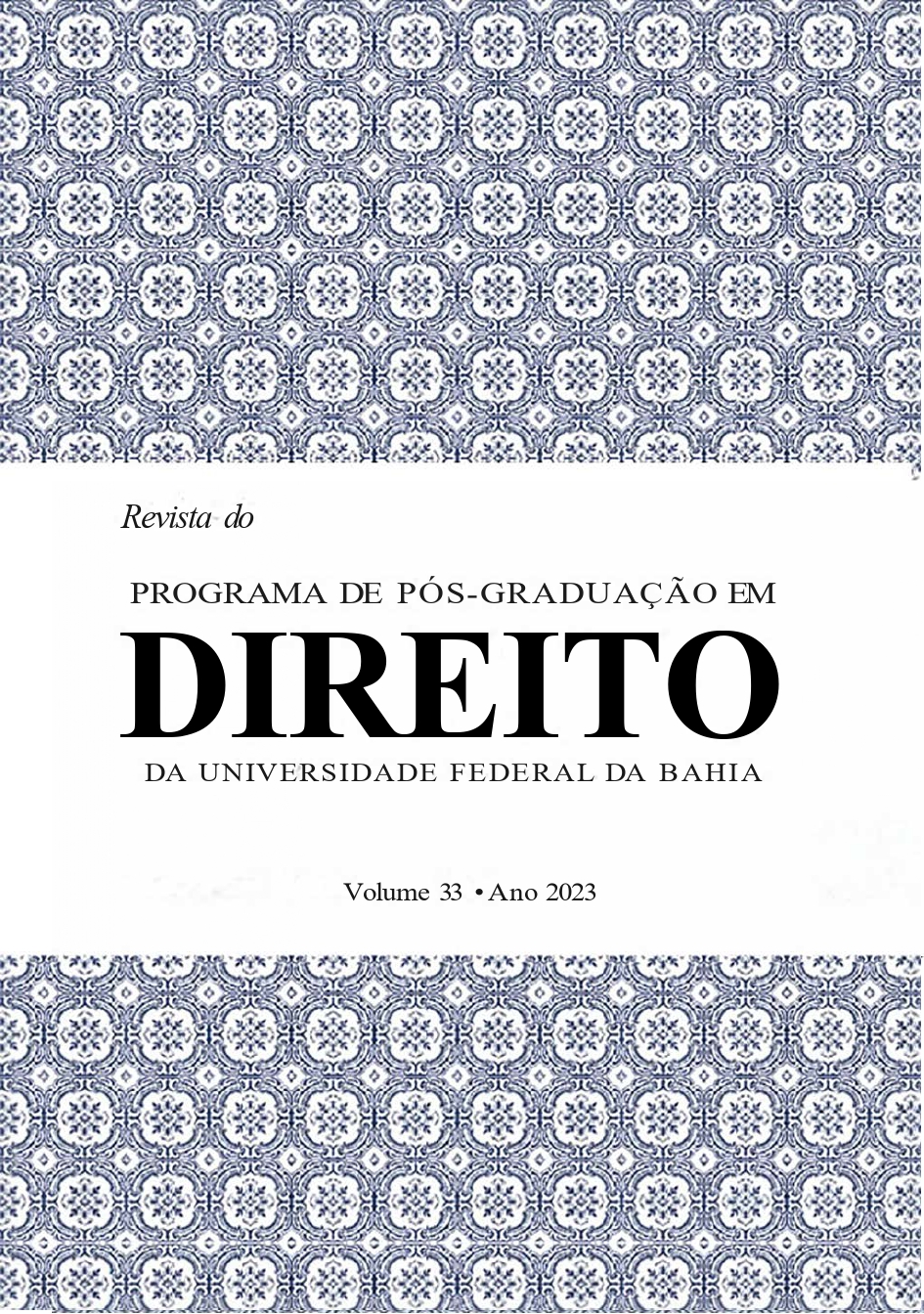SCIENTIFIC RACISM AND BIOANTHROPOLOGIC CRIMINOLOGY THEORIES
BRIEF ANALYSIS OF CRIMINAL SELECTIVITY IN BRAZIL.
DOI:
https://doi.org/10.9771/rppgd.v33i0.54769Keywords:
Race, Scientific Racism, Criminology, Criminal SelectivityAbstract
This research has got as main theme the study of scientific racism and positive criminology of Cesare Lombroso and Raimundo Nina Rodrigues, regarded both as issues that influence criminal selectivity in Brazil. General objective consists, therefore, in comprehend bioanthropologic criminal theories and how they were received in Brazil, above all in relation to the influence on punishment criminal structure. On this way, the research problem is centered on knowing if brazilian criminal system has got a racist main branch and if, as a consequence of that, it labels of deliquent and felon black person. Decuctive reasoning is prevailing adopted as methodology for this work, because notions of race, criminology, criminal selectivity and necropolitic (major premise) are used to reach results (minor premise). It is utilized qualitative research, so it is made social phenomenon study that involves the racism problematics on positive criminology, however, it is used as well the quantitative research, since there is data and statistic apresentation. It is concluded that, because of a political, social, historical and ideological racist construction black people remain being labeled as criminals and in inferior position, which causes mass incarceration and criminal selectivity.
Downloads
Downloads
Published
How to Cite
Issue
Section
License
Copyright (c) 2023 Revista do Programa de Pós-Graduação em Direito

This work is licensed under a Creative Commons Attribution-NonCommercial-NoDerivatives 4.0 International License.
1. Autores mantém os direitos autorais e concedem à revista o direito de primeira publicação, com o trabalho simultaneamente licenciado sob a Licença Creative Commons Atribuição 4.0 Internacional que permite o compartilhamentodo trabalho com reconhecimento da autoria e publicação inicial nesta revista.
2. Autores têm autorização para assumir contratos adicionais separadamente, para distribuição não-exclusiva da versão do trabalho publicada nesta revista (ex.: publicar em repositório institucional ou como capítulo de livro), com reconhecimento de autoria e publicação inicial nesta revista.
3. Autores têm permissão e são estimulados a publicar e distribuir seu trabalho online (ex.: em repositórios institucionais ou na sua página pessoal) a qualquer ponto antes ou durante o processo editorial, já que isso pode gerar alterações produtivas, bem como aumentar o impacto e a citação do trabalho publicado

